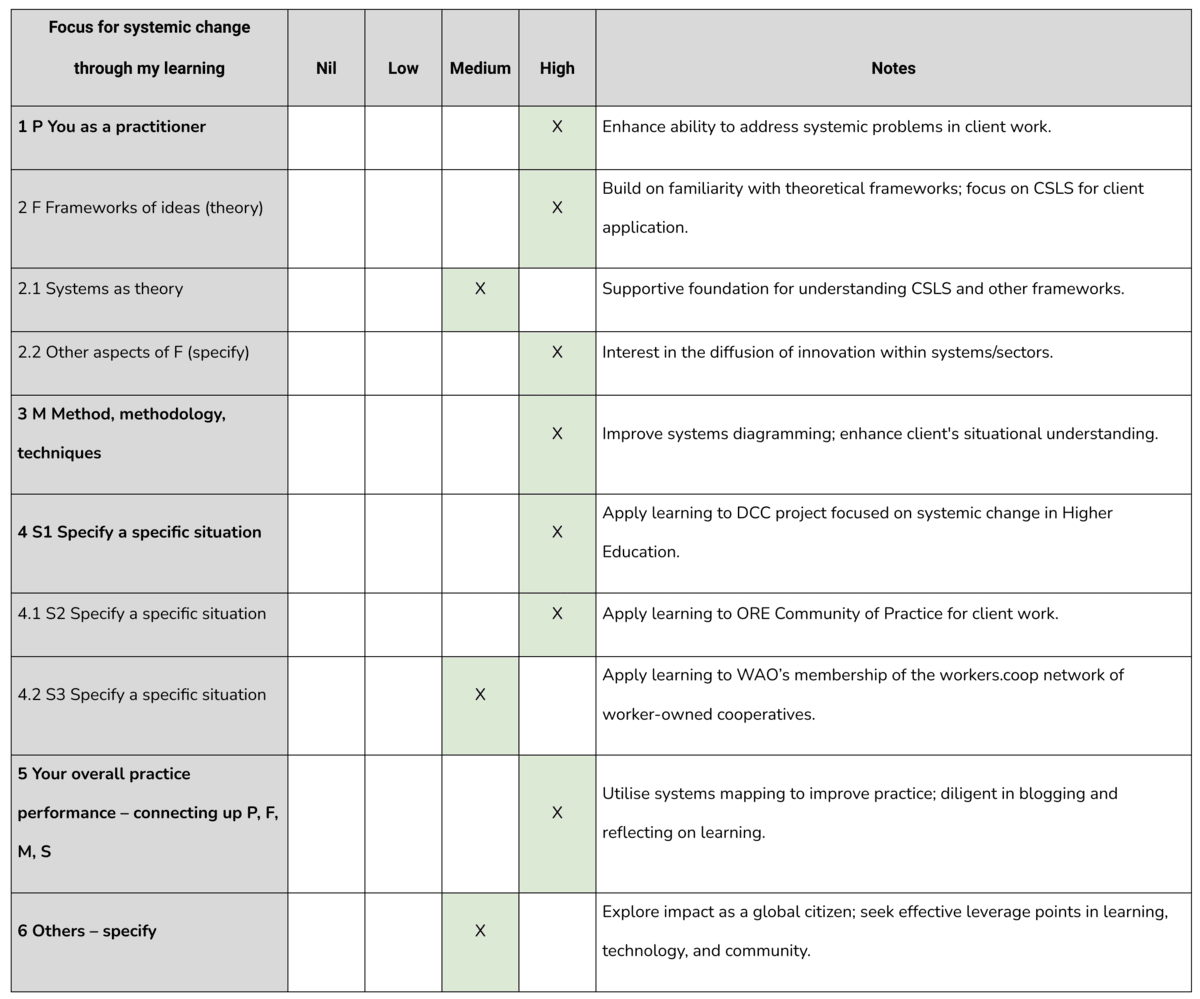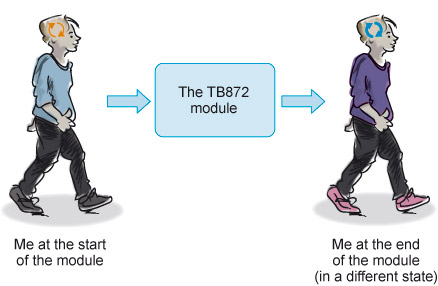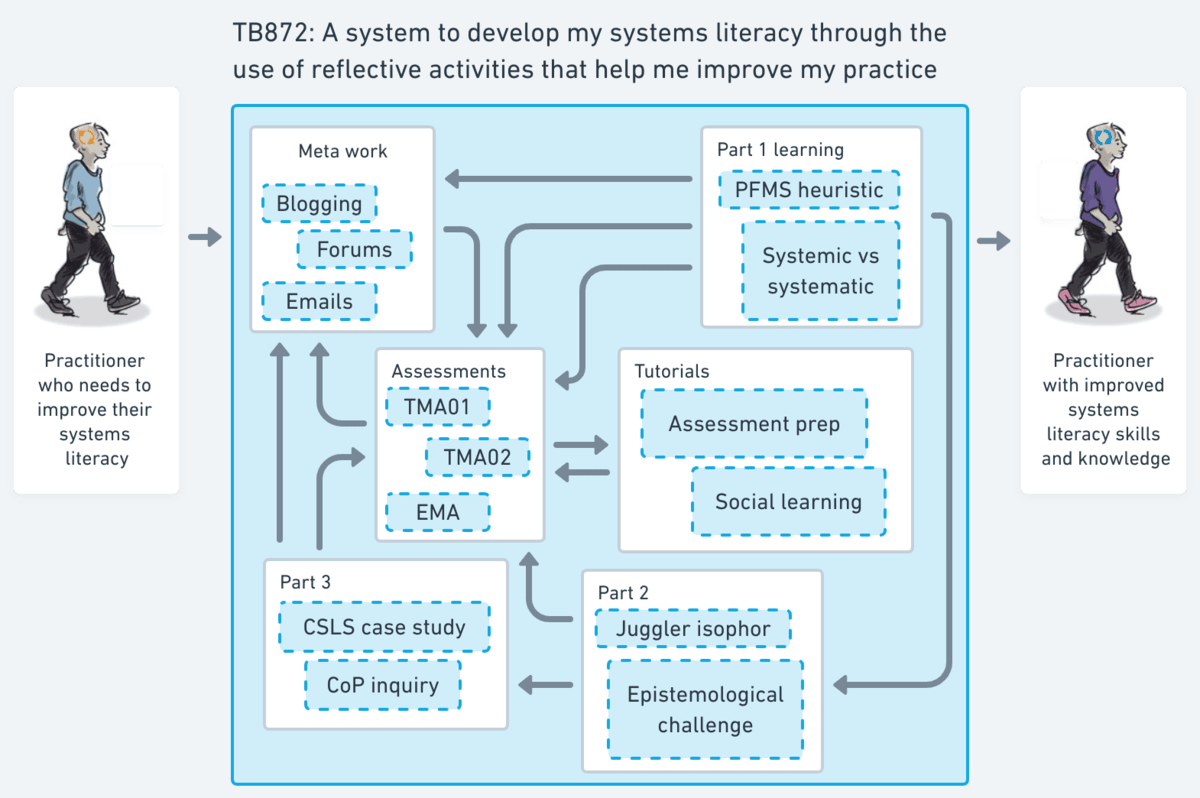TB872: Learning contract and preparing for first assessment
Note: this is a post reflecting on one of the modules of my MSc in Systems Thinking in Practice. You can see all of the related posts in this category.
The final thing I need to do before working on TMA01 (i.e. my first tutor-marked assignment) is to complete a learning contract. The things I’ve worked on so far build towards the assignment, so it’s like a coral reef, with my learning and understanding building up through accretion.
The above table is based on a template made available in the module resources section. It covers the elements of the PFMS heuristic, asking which of them I’m focused on. It’s a worthwhile thing to do, although oddly framed as a ‘learning contract’ (that framing seems to be a dead metaphor along the same lines as a ‘skills passport’)
The table is to be completed in the first instance by ranking your current priority (nil, low, medium, high) against the possible sites for change in the left-hand column. Do one entry per line and use a Y (yes) or N (no) to indicate your current priorities. You can make this framework more illuminating by adding short notes to key cells explaining your priorities.
When you have completed [the table] use it to make some preliminary notes about the sorts of changes you would like to see as a result of having studied the module.
As you can see by the way I’ve completed the table, I’m really interested in all of it. Although I’m not specifically doing this MSc (and therefore this module) for work, I do expect Systems Thinking to be an important part of the way I interact with clients and networks I’m part of, going forward.
I haven’t adapted the table as I don’t have any ‘reporting requirements’, such as justifying my organisation’s spend on my fees (as I’m self-funding it), nor do I have to prove/demonstrate the impact of my learning to my boss (as I don’t have one).
Part 1 of the module closes with a fantastic quotation from Stafford Beer, which I hadn’t come across before, so I’m going to share it here:
It is not the living, breathing human being who resists change in [their] very soul. The problem is that the institutions in which we humans have our stake resist change (…) The power has remained where it resided. (…) Every time we hear that a possible solution simply cannot be done, we may be sure on general scientific grounds that it can. Every time we hear that a solution is not economic, we ought to ask: “for whom?”- since it’s people, just people who will have to pay. Every time we hear that proposal will destroy society as we know it, we should have the courage to say: “Thank God, at last.” And whenever we hear that it will destroy our freedom we should be very cautious indeed. (…) This is the simplest method that the powerful have to cling to power: to convince people that any other concession of that power would be unsafe.”
Beer, S. (1974) Designing freedom. Toronto: CBC Learning Systems.
I won’t be sharing my TMA01 assessment submission, for obvious reasons, but given that it will be based on what I’ve already shared here, you’re not missing out! I have to do things like: update and comment on my trajectory diagram, assess my systems literacy, and share/explain the above learning contract. The main part of it (45%), however, is to use the PFMS heuristic to reflect upon and explain an example of my current or past practice.





